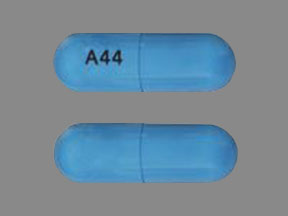
Tasimelteon Coupons & Savings Card – Discount Prices from $5895.21
Generic for: Hetlioz, Hetlioz lq
My prescription
Edit
20MG, Tasimelteon (30 Capsules)
Select pharmacy

CVS
$22642.63
COUPON PRICE
Walgreens
$5895.21
COUPON PRICE
Albertsons
$6795.06
COUPON PRICE
Walmart
$21720.55
COUPON PRICEFree Tasimelteon Savings Card

Walgreens
$5895.21
Show this coupon to your pharmacist
ID
LHET679515
PCN
GDC
BIN
015995
GRP
GDRX
This coupon is not insurance
More prescriptions for insomnia
More prescriptions for insomnia
Tasimelteon dosage forms
Dosage Quantity Price from Per unit 20MG 30 Capsules $11573.10 $385.77 20MG 60 Capsules $23137.20 $385.62 20MG 90 Capsules $34701.30 $385.57
| Dosage | Quantity | Price from | Per unit |
|---|---|---|---|
| 20MG | 30 Capsules | $11573.10 | $385.77 |
| 20MG | 60 Capsules | $23137.20 | $385.62 |
| 20MG | 90 Capsules | $34701.30 | $385.57 |
Tasimelteon Warnings
The safety and warning information for Tasimelteon (Hetlioz) is essential for ensuring its safe use. Below are key points to consider:
Drowsiness: Tasimelteon is designed to aid sleep, and as such, should be taken when you are ready to sleep. It can impair your ability to perform tasks that require full alertness, so avoid engaging in such activities after taking the medication.
Drug Interactions: Be aware that certain medications can affect the metabolism of Tasimelteon. Fluvoxamine (Luvox) and ciprofloxacin (Cipro) may increase its levels, potentially leading to heightened side effects. Conversely, medications like rifampin (Rifadin) and phenytoin (Dilantin) might decrease its effectiveness. It is crucial to inform your healthcare provider or pharmacist about all the medications you are currently taking to ensure compatibility and safety with Tasimelteon.
Please consult your healthcare provider if you have any questions or concerns regarding these safety measures. Your health and safety are of utmost importance, and professional guidance can help mitigate potential risks associated with this medication.
Tasimelteon Side Effects
Common side effects:
- Headaches
- Nightmares or unusual dreams
- Abnormal liver tests
- Daytime drowsiness
Less common but important to monitor:
- Upper respiratory tract infections
- Urinary tract infections
Serious side effects:
- Serious allergic reactions (rash, itching, hives, swelling of the face, lips, tongue, or throat)
Tasimelteon Interactions
Tasimelteon can be affected by other medications, which might change how it works in your body. Drugs like Ciprofloxacin, Fluvoxamine, rifamycins (such as Rifabutin), St. John's wort, and seizure medications (such as Carbamazepine, Phenytoin), as well as viloxazine, are known to influence its removal. If you're using any of these, inform your doctor or pharmacist.
Also, be cautious if you're taking other substances that can make you drowsy. This includes opioid pain relievers (like codeine, Hydrocodone), alcohol, marijuana, sleep or anxiety medications (such as Alprazolam, Lorazepam, Zolpidem), muscle relaxants (like Carisoprodol, Cyclobenzaprine), or antihistamines (such as Cetirizine, diphenhydramine). Always check the labels on your medications, especially allergy or cold products, as they may contain ingredients that cause drowsiness. Consult your pharmacist on safe usage.
Additionally, smoking can lower the levels of tasimelteon in your blood. Inform your doctor if you smoke or have recently quit smoking.
